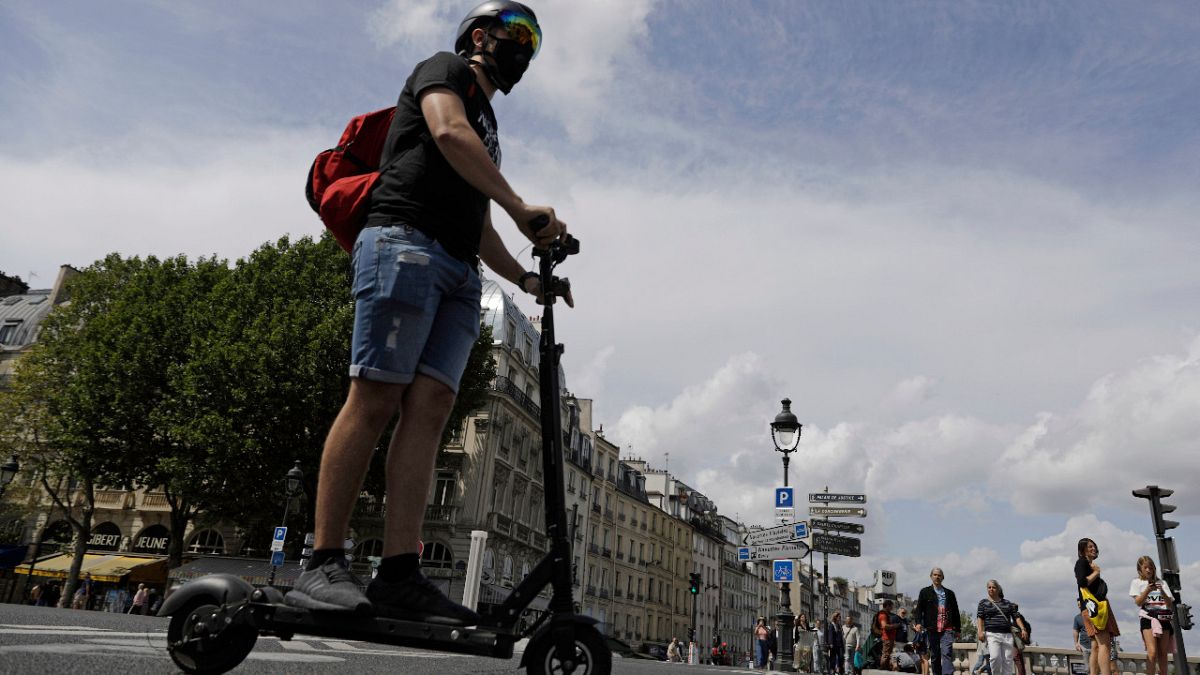They've had their fair share of bad press, but the UK has finally given the go-ahead to e-scooters.
"A transport revolution." This is how British transport secretary, Grant Shapps, introduced a proposal to allow electric scooters on public roads in the United Kingdom.
Even if it is common to see e-scooters in the streets, British statutes still consider them unlawful.
Law texts - dating back to 1835 for the Highway Act and 1988 for the Road Traffic Act - precisely prevent this means of transport if the driver doesn't have a driving license, insurance, a number plate and a helmet.
This is what the British government intends to change, as announced on an open consultation on the future of transport regulatory review launched on Monday, March 16.
Since they come under the banner of motor-based vehicle, e-scooters are classified under the category of PLEV, Personal Light Electric Vehicle.
As they are neither bicycles nor normal scooters, but also can't be considered to be motoscooters, e-scooters faced a legal dead-end.
The consultation will be calling for evidence asking for information and views on three areas:
- micromobility vehicles (such as e-scooters)
- flexible bus services
- mobility as a service platforms (Maas)
This consultation follows Schapps' plan on improving public transport after the 2020 budget allotted £4.4 billion to his cabinet.
In an interview with The Guardian, he explained "this review will ensure we understand the potential impacts of a wide range of new transport types such as e-scooters, helping to properly inform any decisions and legalisation."
Towards more autonomy
Kevin N. has sold electric scooters in London at Scootisfaction since 2018. With customers broadly aged between 25 and 45, he saw a recent boom in demands for e-scooters as people "are looking for more autonomy."
"In London, public transports are the most common way to commute in everyday life. But with the coronavirus crisis, people will start looking for alternatives," he explained to Euronews.
According to the salesman, a change in the law could help his business activity. Yet, he holds out hope he can avoid insurance and a number plate.
"What people like is that e-scooters are easy to use, they like this sense of freedom," he added. "If we start putting a number plate on scooters, why not apply the same measures to bicycles?"
On the ecological impact, the salesman agrees that using a rented electric scooter "isn't ecofriendly, since the batteries can last no more than two months." On the other hand, buying one with a long-lasting battery is his answer.
A study by North Carolina State University found the average global warming impact for rentable e-scooters is 202g of CO2 per mile (1.6 km) travelled.
By comparison, the impact from a bus journey is 82g CO2 equivalent per passenger per mile, whereas the use of a personal bicycle results in 8g CO2 equivalent for the same distance.
One of the major points the government should keep an eye on is "people's behaviour on the streets," according to the Scootisfaction vendor. "Here in UK, there only has been one death, and it was not related to the scooter, but the other driver."
On July, 12, 2019, TV presenter and Youtube star Emily Hartridge had died in an electric scooter crash, after a lorry collided with her at a roundabout in Battersea, south-west London.
"If people respect the usual rules, I don't see any problem there. But providing better road infrastructures and more cycling paths should be one of their [the government] priorities," he asserted.
